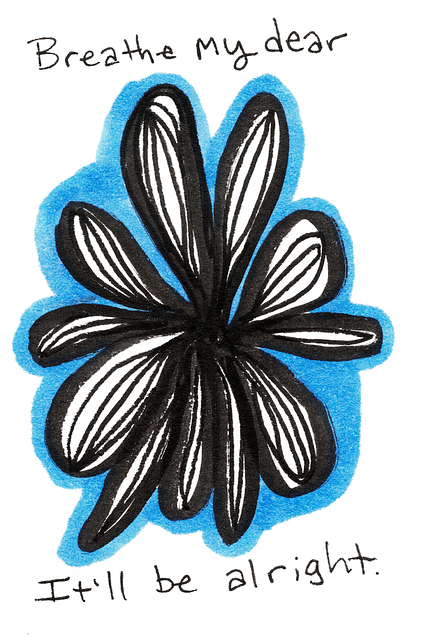Anxiety among children in polyamorous and open relationships requires specialized therapy for children in polyamorous and open relationships. With early identification, approaches like cognitive-behavioral therapy (CBT) and emotional regulation techniques through journaling can effectively manage anxiety. Parents play a crucial role by combining therapy with supportive environments. Healthcare provider training ensures empathetic support tailored to these unique dynamics, fostering mental wellness and healthy relationship development. Mindfulness exercises, deep breathing, and progressive muscle relaxation are practical tools, while effective communication strategies enhance emotional well-being in these complex families.
Anxiety is a prevalent concern among children, impacting their mental health and overall well-being. This article explores comprehensive strategies to manage anxiety, focusing on unique therapeutic approaches tailored to diverse needs. We delve into specific techniques beneficial for polyamorous and open relationships, offering insights into navigating these complex dynamics. Additionally, practical daily coping strategies are provided to empower individuals in managing anxiety effectively, with a special emphasis on the unique challenges faced by children and their families.
- Understanding Anxiety: A Comprehensive Look at Children's Mental Health
- Unique Approaches to Therapy: Supporting Polyamorous and Open Relationships
- Practical Tools for Daily Living: Managing Anxiety Through Coping Strategies
Understanding Anxiety: A Comprehensive Look at Children's Mental Health

Anxiety among children is a prevalent concern that requires a nuanced understanding and effective management strategies. Children’s mental health encompasses a wide range of emotions, behaviors, and social interactions, and anxiety can manifest in various ways. It’s essential to recognize that anxiety disorders are more than just feeling nervous or worried; they significantly impact a child’s daily functioning and overall well-being.
Early identification is crucial, as it paves the way for timely therapy for children. Different therapeutic approaches, such as cognitive-behavioral therapy (CBT), can be tailored to suit individual needs, including those within polyamorous and open relationships. CBT helps children identify and change negative thought patterns and behaviors associated with anxiety. Additionally, encouraging emotional regulation through journaling exercises and self-care practices can empower children to manage their feelings effectively. By combining therapy with supportive guidance and a safe family environment, parents and caregivers can play a pivotal role in fostering mental wellness in children.
Unique Approaches to Therapy: Supporting Polyamorous and Open Relationships

In today’s diverse social landscape, therapy practices are evolving to meet the unique needs of various relationship structures. One such area gaining attention is providing support for children within polyamorous and open relationships. These families often require specialized care that understands their distinct dynamics. Traditional therapeutic approaches might not adequately address the specific emotional healing processes involved in these relationships, making tailored interventions crucial.
Healthcare provider cultural competency training plays a vital role here, ensuring professionals are equipped to offer empathetic support. By recognizing the challenges faced by polyamorous and open families, therapists can create safe spaces for children to express their feelings and experiences. This individualized attention fosters mental wellness and promotes healthy relationship development, contributing to the overall well-being of these unique family structures. Additionally, the growing popularity of mental wellness podcast series production highlights the increasing demand for content that delves into these specific topics, further emphasizing the need for specialized therapy approaches.
Practical Tools for Daily Living: Managing Anxiety Through Coping Strategies

Anxiety management is a crucial aspect of maintaining overall well-being, and practical tools can greatly aid individuals in their daily lives. For children experiencing anxiety, therapy sessions focused on coping strategies can be transformative. Techniques such as mindfulness exercises, deep breathing, and progressive muscle relaxation teach young minds how to control and reduce anxious thoughts. These methods empower children to navigate their emotions effectively, fostering a sense of calm and resilience.
In the context of polyamorous and open relationships, managing anxiety takes on additional layers of complexity. Communication strategies become essential tools for navigating these alternative relationship dynamics. Open and honest dialogue allows individuals to express their feelings, set boundaries, and understand one another’s needs, thereby boosting confidence and emotional well-being. By implementing these coping mechanisms, whether through therapy or personal practice, individuals can lead more fulfilling lives, even in the face of anxiety.
In conclusion, managing anxiety effectively involves a multi-faceted approach. By understanding the unique needs of children’s mental health, exploring alternative therapies like those supporting polyamorous and open relationships, and adopting practical coping strategies, individuals can significantly enhance their well-being. These techniques empower people to navigate life’s challenges with greater resilience and peace of mind, fostering a more balanced and fulfilling lifestyle.













